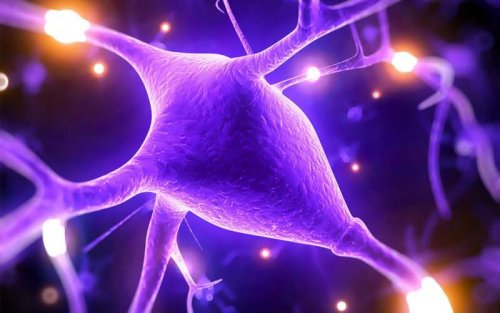Hypermagnesemia - High Magnesium Levels

Hypermagnesemia happens when there’s an overly high concentration of magnesium in the blood. The normal value of this element in an adult is 1.5 to 2.5 mEq/L. Doctors diagnose a person as having this condition when they exceed the above range in laboratory tests.
The presence of hypermagnesemia implies a hydro electrolytic imbalance in the body. Magnesium is one of the body’s electrolytes. The goal of an electrolyte is to produce an electric charge when it dissolves in the body fluids. However, most of the magnesium in the body has no electric charge.
In any case, hypermagnesemia is a rare condition associated with kidney problems in most cases. Thus the most common cases happen in those experiencing kidney failure.
Magnesium in the body

There are more than 300 enzymes that require magnesium to perform some of its most important functions. In principle, the cells regulate the flow of magnesium. From there, the said element activates and moderates different biochemical reactions in the body.
Keeping magnesium levels normal is essential for human health. Thus, any deficiency or excess of this element can give rise to heart and nervous system problems. For these reasons, hypermagnesemia is a delicate condition that can have serious negative consequences.
Causes of hypermagnesemia
The kidneys are the organs responsible for excreting magnesium. So, any abnormal condition or any damage to those organs can lead to hypermagnesemia. The main causes of this are:
- Renal insufficiency – this is the most frequent cause of hypermagnesemia, and kidney failure prevents magnesium from being excreted normally.
- The excessive use of some substances, such as laxatives, antacids or some dietary supplements.
- Some chemotherapy treatments which can lead to the development of tumor lysis syndrome. This, in turn, causes magnesium levels to increase.
- Severe, extensive burns
- Other chronic conditions such as hypothyroidism and Addison’s disease.
You may be interested: 5 Reasons Why Magnesium Helps to Improve Your Mental Capacities
Symptoms and diagnosis

Doctors use blood tests to diagnose hypermagnesemia. There aren’t usually any recognizable symptoms when magnesium levels are only slightly elevated. However, if the magnesium index continues to increase, then the following symptoms are very likely to appear:
- Muscular weakness
- Vomiting and nausea
- Headache
- Irregular or slow heartbeat
- Facial heat and redness
- Drowsiness
- Dizziness, fainting and/or slow reflexes
- Slow breathing
Muscle paralysis
When a person who has hypermagnesemia falls asleep, and it’s impossible to wake them up, and they also have difficulty moving their arms and legs, then you should take them to the hospital immediately. Also, you must consult the doctor as soon as possible if their breathing and heart rate are slow. Also, if they experience drowsiness and muscle weakness.
Read more here: What Are the Symptoms of Magnesium Deficiency?
Hypermagnesemia treatment
The treatment for high levels of magnesium in the blood depends entirely on what’s causing it. People with renal insufficiency, which is the most affected group, must follow strict medical control in regard to the medication they take. In fact, they must have strict control over their general state of health. These cases usually require dialysis.
Renal dialysis is a treatment that helps the kidneys eliminate some chemicals and waste from the blood. This is mainly when the kidneys can’t fulfill this function on their own. There are times when dialysis isn’t necessary and pharmacological treatment is enough to correct the situation.
Usually, a doctor will prescribe calcium gluconate or diuretics for this condition. Patients must follow it rigorously. In general, they should stay away from laxatives and antacids containing magnesium. Also, if a person is prone to constipation they must regulate their situation through a balanced diet, rich in fiber.
You must always consult your doctor in regard to any medications you’re using, even if they are over-the-counter. Also, you must only take supplements containing magnesium under medical supervision. As always, keep all medication out of the reach of children.
All cited sources were thoroughly reviewed by our team to ensure their quality, reliability, currency, and validity. The bibliography of this article was considered reliable and of academic or scientific accuracy.
- Crawford, A., & Harris, H. (2012). Un equilibrio necesario Hipomagnesemia e hipermagnesemia. Nursing (Ed. española), 30(2), 24-27.
- Blanchard, A. (2007). Metabolismo normal y patológico del magnesio. EMC – Tratado de Medicina. https://doi.org/10.1016/s1636-5410(07)70616-5
- Blanchard, A., & Vargas-Poussou, R. (2015). Alteraciones de la magnesemia. EMC – Tratado de Medicina. https://doi.org/10.1016/s1636-5410(15)74685-4
This text is provided for informational purposes only and does not replace consultation with a professional. If in doubt, consult your specialist.








